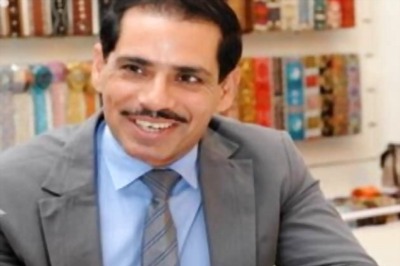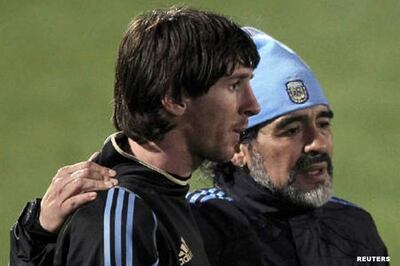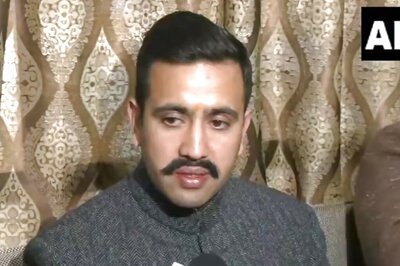
views
Kolkata: Tables have turned on Chief Minister Buddhadeb Bhattacharjee with the demise of the Left Front in West Bengal after its 34-year-old rule in a dramatic reversal of fortunes just five years after the CPI-M stalwart himself led the alliance to a landslide win.
Bhattacharjee, a CPI-M stalwart, has been dealt a body blow in the the winds of change that swept across the red bastion with the Mamata juggernaut stopping the Left front from making a bid for a eighth straight term.
Known for leading a spartan life, the dhoti kurta clad Bengali 'Bhadralok' with a clean image, continued to operate from his two-room flat at Palm Avenue which has been home for many years and steered the Front through heavy odds on many an
occasion.
But 67-year-old Bhattacharjee, an avid cricket fan, could not get another innings for the ruling alliance after he faced the toughest challenge in his entire political career.
Bhattacharjee succeeded Jyoti Basu when he decided to step down as chief minister in November 2000 on health grounds, ahead of the assembly elections in 2001 and led the LF to victory.
After leading the Front to a landslide win with 235 out of 294 seats in the assembly in 2006, he embarked upon an industrialization drive to change the face of West Bengal, and invited national as well as foreign capital to set up
factories in the state which included the world's cheapest car, Tata Nano.
His plans, however, backfired, as the Mamata Banerjee-led Trinamool Congress opposed the 'forcible' acquisition of land at Singur for the car plant which changed the face of politics in the state.
His government also drew flak not only from the opposition parties, but also from LF partners like Forward Bloc, RSP and CPI, for the police firing in Nandigram in 2007 in which 14 persons were killed.
Wanting to be the architect of modern Bengal, he aggressively pushed his pro-industry stance. The first step in this direction after taking over as the chief minister of the seventh Left Front government was to sign an agreement with the Tatas to set up the Nano unit at Singur.
Holding that the state could not achieve progress by being dependant only on agriculture, he made industrialisation his watch word and his government went ahead with land aquisition despite stiff opposition.
Failed to gauge a developing rift between his party and rural population over land acquisition.
His plans backfired as Trinamool Congress opposed the 'forcible' acquisition of land at Singur for the car plant which changed the face of politics in the eastern state.
In the face of a vigorous opposition, the Tatas pulled out of the state and shifted the Nano plant to Gujarat dealing a body blow to Bhattacharjee's dream project.
In the midst of the Singur movement came the police firing at Nandigram.
Bhattacharjee's government drew flak not only from opposition parties, but also from LF partners like Forward Bloc, RSP and CPI, for the police firing in Nandigram in 2007.
In a bid to salvage lost ground, Bhattacharjee announced that his government would not acquire land for a chemical hub in Nandigram, but that did not cut much ice with the people which was reflected in the subsequent civic elections.
Bhattacharjee later admitted that he had committed a mistake in Nandigram and also by trusting the opposition which did not keep in mind the state's interest.
He also drew criticism over the presence of armed camps in Maoist-hit West Midnapore. His image was to take a further beating after the Netai killings on January seven this year, when nine persons were killed in firing by armed CPI(M)
cadre.
Bhattacharjee was elected as a member of the state assembly from Kashipur in 1977 for the first time when the Left Front assumed power in the state.
Known for his penchant for art and culture, he was given the charge of Information and Cultural Affairs(I and CA) ministry.
But, in the 1982 assembly poll, he lost the election from Kashipur and shifted to the Jadavpur constituency in the southern fringe of Kolkata from where he contested the election in 1987 and won comfortably. He was again made a
minister.
In 1993, he resigned from the Jyoti Basu ministry, but rejoined it later.
In 1996, he was given the charge of the Home (Police) ministry besides the I and CA.
Bhattacharjee was groomed as an alternative to Jyoti Basu and was made the deputy Chief Minister in October 1999.
He played an active role in politics from his college days and was appointed state secretary of the Democratic Youth Federation, the youth wing of the CPI-M in 1968 and rose to become a member of CPIM politburo, the party's highest
policy-making body.
Bhattacharjee, nephew of the revolutionary Bengali poet Sukanta Bhattacharya, was born in 1944 in north Calcutta.
A voracious reader, Bhattacharjee did his schooling from Sailendra Sarkar Vidyalaya in North Kolkata. Thereafter, he joined Presidency College as a student of Bengali Literature and graduated from there.
Bhattacharjee has also translated the works of Nobel laureate Gabriel Garcia Marquez and Vladimir Mayakovsky's poems into Bengali.


















Comments
0 comment